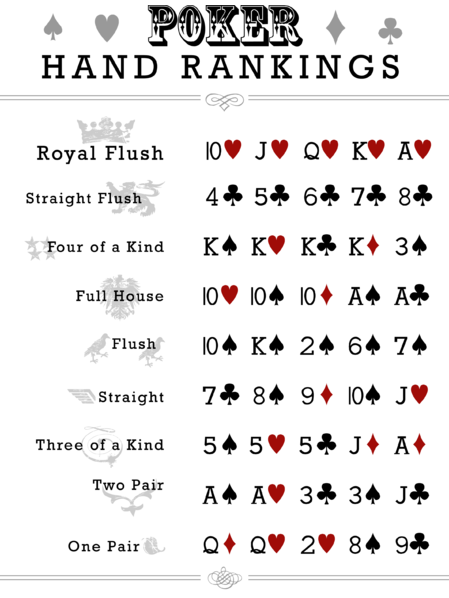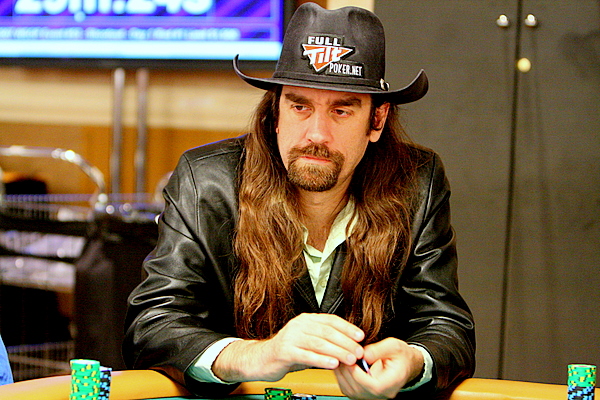Poker Tips Texas Holdem
Basic Strategy: Tips : Position : Starting Hands : Bluffing : Betting : Money Management
So this is where it all begins, a fantastic journey that is going to teach you the bread and butter strategy that you are going to need to beat friends, family and complete strangers at the poker table to help you pad your bankroll on a regular basis.
- Texas Hold'em Tips. Basic Strategy: Tips: Position: Starting Hands: Bluffing: Betting: Money Management So this is where it all begins, a fantastic journey that is going to teach you the bread and butter strategy that you are going to need to beat friends, family and complete strangers at the poker table to help you pad your bankroll on a regular basis.
- Advanced Poker Tips: These can include the correct use of poker tools like an odds calculator and more sophisticated strategies that will help you win at Texas hold'em poker with a variety of players.
I could delve right into a strategy article here, but I am going to whet your appetite a little with a few core Texas Hold'em tips to get the ball rolling. This way we can set some basic (but easy to follow) groundwork, and then build on it as we go along. No problemo...
1] Stick to playing good cards.
Learn continuation betting strategy. This article is dedicated to poker tournament strategy, not continuation betting but the fact is, c betting is an important part of tournament poker. You need to understand which boards favour your perceived range and what favours your opponent. A lot of players waste chips throwing out foolish continuation.
As much as you might like to think that being a good poker player is playing any two cards and making money with them, it really isn't. If you are playing bad cards, you are playing bad cards... there is no two ways about it, no matter how many fancy plays you think you know.
As a potential winning poker player, you need to come to terms with the fact that you have to throw away the majority of the hands you are dealt. The ability to play the good cards and throw away the bad ones is the foundation of every winning poker player. You might see pro players on TV playing useless hands, but these shows do not truly reflect how these pros play normally (if they want to win money), so don't get sidetracked.
Have a read over the article on starting hand strategy for more information.
2] Always think about your position.

Your position at the table can have a huge influence of the outcome of a hand. You will really be amazed at how much power you have when you are acting after your opponents rather than before. The longer you play poker, the more you will start to realize how almost every play you make will be influenced by your position at the table.
You see that white dealer button on the table? Make sure you get used to keeping track of it, because playing in position (when you are acting after your opponents) more often than you play out of position will have a dramatic effect on the number of pots that you drag home.
Hands in Texas Hold'em can be won on position alone. Honestly, position is awesome.
3] Don't get addicted to bluffing.
Yes, bluffing can win you a few extra pots, but it is not the heart of winning poker strategy. First of all you need to work out how to play a hand properly, and then you can start thinking about adding extra elements to your game like the bluff. The chances are that if you are a new player, you are bluffing far too often and losing money because of it.
It is an awesome feeling to pull off a successful bluff, but as you start out learning the game and trying to make money from it, the bluff is something that is best set to the side for the time being. If a prime opportunity to bluff jumps right out at you, then by all means do what you need to take the pot. But in general, the bluff is something that should be used sparingly and only in the right situations when you are confident that it is going to work.
It's better to save your money and check, rather than lose a lot by attempting to bluff. Read up on the bluffing tips article to help you pick the right spots.
4] Learn a little bit of the maths.
No, please, don't run. The math in poker isn't that hard at all. Okay, it might take 5 or 10 minutes to get your head around some of it, but it is incredibly handy and will help you to make the most profitable decisions possible at every opportunity and earn you a lot of money. Now that's enough to get anyone wanting to learn some math!
Your first stop should be the playing flush and straight draws article, which will cover basic maths and pot odds. You don't have to read it just yet, but keep it in mind for a little further down the road.
5] Think about everything that is taking place at the poker table.
A thinking poker player is a winning poker player. The problem with poker is that if you win, it doesn't necessarily mean that you made the right play. Similarly, if you lose, it does not mean that you made the wrong play. This can make it tricky to figure out what is wrong and right when it comes to playing a good poker game, but only if you let it.
Whenever you make a decision, think about why you are doing what you are doing and what you expect to accomplish by doing this. Similarly, think about why your opponents are making the moves they make and why they could be making them. This is a great way to develop your mind and help to start seeing poker from all the angles, which is key to developing a winning poker game.
Texas Hold'em tips overview.
Okay, that's pretty much everything I wanted to say. I'm not going to drag this out for any longer, but I just want to say that if you can follow these Texas Hold'em tips closely and build upon them with the information on this site, you will eventually become a consistent winner in the game of no limit Texas Hold'em. Cool or what?
Oh, and also. Don't forget to play within your limits and exercise good money management. Otherwise you are doomed to failure, no matter how well you can play. Seriously.
Go back to the sublime Texas Hold'em guide.
Can You Afford Not To Use
Poker Tracker 4?
“I wouldn’t play another session of online poker without it”
“I play $25NL, and in under 1 week PT4 had paid for itself”
Comments
Image credit - Danny Maxwell
Whether you're playing with friends or at an online site, the goal of poker is to win. Of course, this is easier said than done today when you consider that there's a wealth of poker strategy available today. But that certainly doesn't mean your case for becoming a successful player is hopeless. This is especially the case if you read the following step-by-step guide on how to win at Texas Holdem poker.
Basic Texas Holdem Poker Strategy
 'Pot odds' is among the most-basic and helpful because this helps determine whether or not you should make a call post-flop. For instance, you and a single opponent see the flop and the pot is worth $10; your opponent bets $5 and you are now left deciding whether it's worth risking $5 to win a pot that's worth $15 (including opponent's bet). This makes your pot odds 15:5, or 3:1, meaning you need better than a 3:1 chance of hitting your drawing hand to make this a profitable call.
'Pot odds' is among the most-basic and helpful because this helps determine whether or not you should make a call post-flop. For instance, you and a single opponent see the flop and the pot is worth $10; your opponent bets $5 and you are now left deciding whether it's worth risking $5 to win a pot that's worth $15 (including opponent's bet). This makes your pot odds 15:5, or 3:1, meaning you need better than a 3:1 chance of hitting your drawing hand to make this a profitable call.
Study Opponents and Focus
Image Credit - Yanning Van De Wouwer
Texas Holdem Poker Tips For Beginners
what their 'range' of hands is based on their previous actions. This is only something that can be gained by watching your opponents during every hand—including the ones you're not involved in.The goal is to build a profile of everybody at the table so you can figure out what range they play in each situation. For example, if you see another player get caught trying to steal blinds with 6-5 unsuited in late position, you know that they have a wide range in these situations, allowing you to call against them with more hands.
How to be Good at Poker - Intermediate Tips
Tools for learning Poker Strategy
Image credit - Raed Photography
- Poker Articles - Abundant, and very good for learning the basics of how to win at poker. It's especially nice when articles are categorized in beginner, intermediate and advanced sections.
- Poker Books - These are a good way to get inside the head of a pro and see how they think when playing the game. Just be sure that the concepts are relevant and not outdated, though.
- Training Videos - There was an explosion of training videos in the late 2000s, as players moved away from books/articles and craved visual strategy. The great thing about training videos is that you get to see players actually playing online poker as they discuss different topics. But beware that not everybody who does training videos is a long-term winner.
- Live Streaming (Twitch) - This has become one of the most-popular ways to learn poker tips because you get to watch skilled pros in real-time. Plus, you might also be entertained by some of the better Twitch performers. Jason Somerville,Bertrand Grospellier and Jaime Staples have become stars through live streaming.
- Coaching - You can get one-on-one training by hiring a coach. The quality of coaching you get often depends on whom you hire and how much money you spend. But this option is worth pursuing if you want a good player to critique your play and explain what you need to do to get better.
- Heads-Up Displays (HUDs) - These are tools that help keep track of various stats on opponents and your own play during a session. Some online poker sites have banned these tools while others still allow you to use HUDs since they aren't technically cheating.